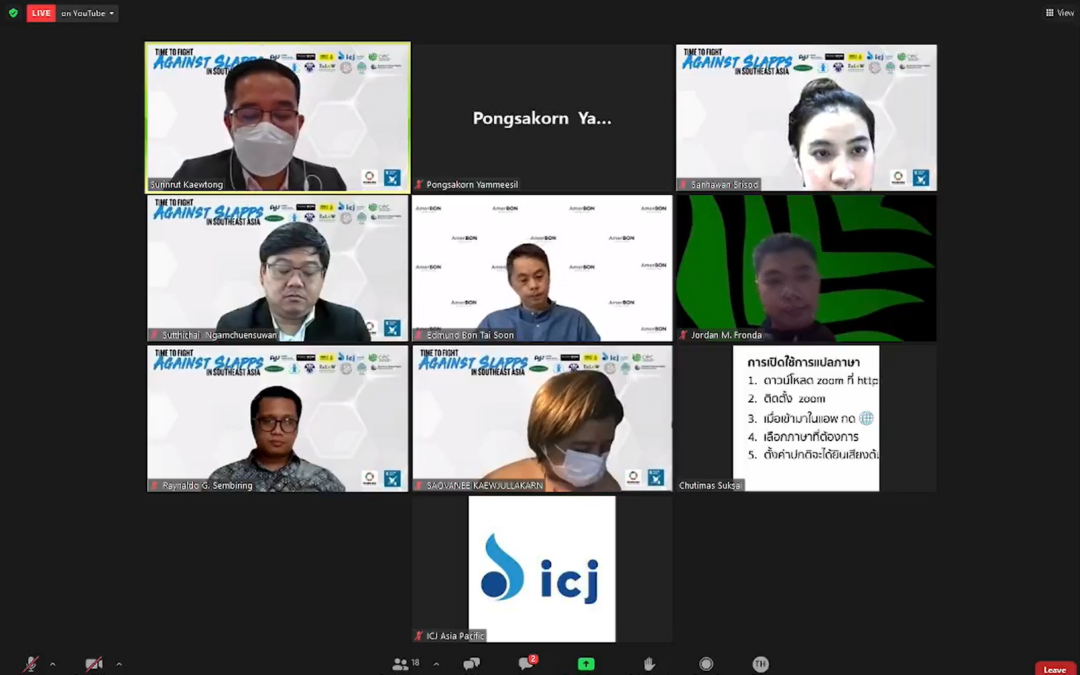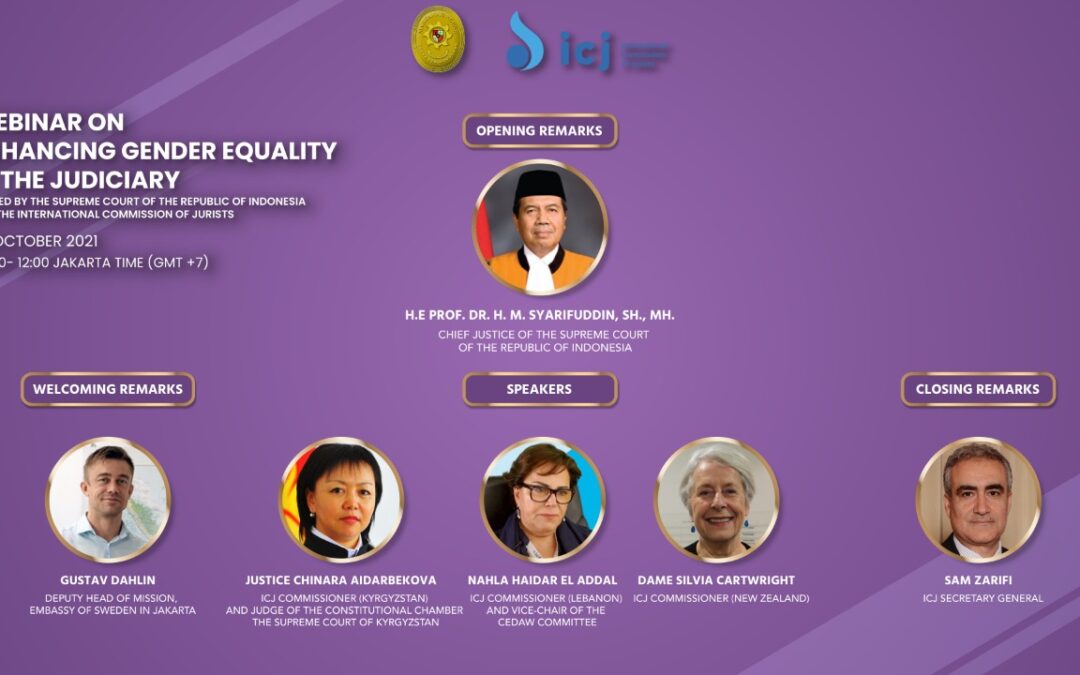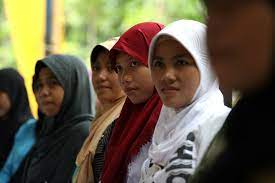
Sep 21, 2021 | Uncategorized
Today, the International Commission of Jurists made a submission to the Committee on the Elimination of Discrimination against Women (CEDAW Committee) in view of its forthcoming review on Indonesia’s implementation of and compliance with its obligations under CEDAW in light of the State party’s eighth periodic report under Article 18 of the Convention.
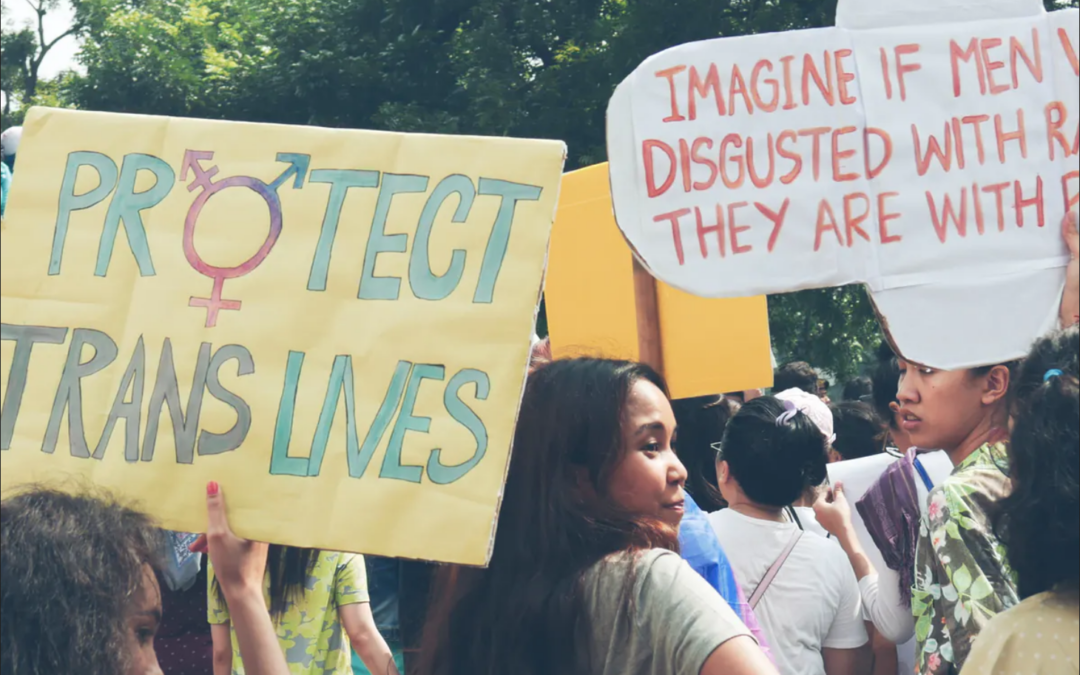
May 17, 2021 | News
LGBTI people in Indonesia, particularly trans women, face significant discrimination in access to Covid-19 vaccines as the country rolls out its vaccination programme in the face of a surge in the pandemic, the ICJ said today.
Indonesia is planning to start vaccinating the general population in July and an electronic identity card (e-KTP) is required to be vaccinated. However, most trans women do not have, or cannot obtain, an e-KTP and are thus unable to access the COVID-19 vaccines.
“As we mark the International Day against Homophobia, Transphobia and Biphobia on 17 May, Indonesian authorities must ensure that LGBTI communities, trans women in particular, are not excluded from access to vaccines,” said Ruth Panjaitan, ICJ Legal Adviser for Indonesia.
To get an ID card, trans women need to present a Family Card, a document issued to the head of the family. However, many, trans women or waria have been kicked out of or fled their family homes without formal documents as a result of domestic violence. Between 50-60% of transwomen senior citizens reportedly do not have e-KTP, which makes it difficult for them to access government’s healthcare service, including COVID-19 vaccination.
“Most waria in Indonesia don’t even have an ID card let alone an e-KTP. The current system compounds the discrimination against trans women with the heightened risk of illness due to Covid-19. Indonesian authorities must urgently reform the e-KTP system to facilitate the legal status of people based on their own self-identified gender identity,” Ruth Panjaitan said.
Trans women who want to process their e-KTP in accordance with their gender identity have to first obtain an affirmation of their gender from a court, as the e-KTP does not recognize transgender. There is currently no definite and clear regulation for the legal gender change under Indonesia’s law or Supreme Court regulations, so the determination will depend on individual judges in each court’s jurisdiction. LGBTI activists have noted that in practice many judges apply arbitrary religious-based criteria to reject the petition to change gender. In most cases, the court that takes on the application still requires a doctor’s medical certificate that the petitioner has conducted gender reassignment surgery or other hormonal treatment as well other onerous document requirements, such as a psychiatric evaluation and witness information.
“These intrusive, arbitrary, prolonged and burdensome procedures make it even more difficult for trans women in Indonesia to get legal recognition of their gender identity, and lack of recognition of gender identity before the law blocks their access to health care,” Ruth Panjaitan said.
The Indonesian authorities have recently started their effort to reach out to transgender people in order for them to be registered in accordance with Law No.24 year 2013 and Law No.23 year 2006 regarding Civil Administration, which mentions that all Indonesian citizens have to be registered and that they have to have both ID and Family Card, so that they can get a good public service. However, the current system still falls short under international law to protect transgender people.
“Excluding and marginalizing trans women in the middle of a pandemic aggravates the longstanding discrimination they have faced from the Indonesian government, and it is also counterproductive to an effort to vaccinate as many people as possible to stop the spread of the disease,” Ruth Panjaitan said.
Additional information
Transgender people in Indonesia have a right to nondiscriminatory access to vaccines and overall rights to health, which is protected under Article 12 of the International Covenant on Economic, Social, and Cultural Rights (ICESCR) to which Indonesia is party. The UN Committee on Economic, Social and Cultural Rights has affirmed that all healthcare goods, facilities, and services must be available, accessible, acceptable and of adequate quality, especially to the most vulnerable or marginalized sections of the population, in law and in fact, without discrimination of any of the prohibited grounds.
Under international human rights law and standards, a person’s declaration of their preferred gender identity for the purpose of obtaining gender recognition should not require validation by a medical expert, judge or any other third party. Requiring someone seeking legal recognition of their self-identified gender to undergo treatment is a breach of their right to protection against attacks on their dignity and physical and mental integrity, guaranteed under the ICESCR and the International Covenant on Civil and Political Rights, to which Indonesia is a party.
As affirmed by the Yogyakarta Principles, which address the human rights of LGBTI persons, gender identity is a private matter, concerning someone’s deeply felt individual conviction, which should not be subject to arbitrary third-party scrutiny. Legal gender recognition processes protecting the rights of transgender people must be conducted without medical requirements and it must be quick, transparent, and accessible, and effectively uphold the rights of transgender people, including their right to self-determination.
As of 10 May 2021, Indonesia has reported more than 5,000 new infections on average each day and 1,718,575 cumulative confirmed COVID-19 cases. The figure brought the country to the fourth position of countries with highest cases in Asia. The inoculation programme kicked off in mid-January for those deemed to be high priority, such as health workers, the police and military, and other public workers. The proportion of Indonesia’s total population that has received at least one dose of a vaccine as at 4 May 2021 was 4.64 per cent.
Contact
Ruth Panjaitan, Legal Adviser for Indonesia, e: ruthstephani.panjaitan(a)icj.org
Download
Press Release in Bahasa Indonesia.
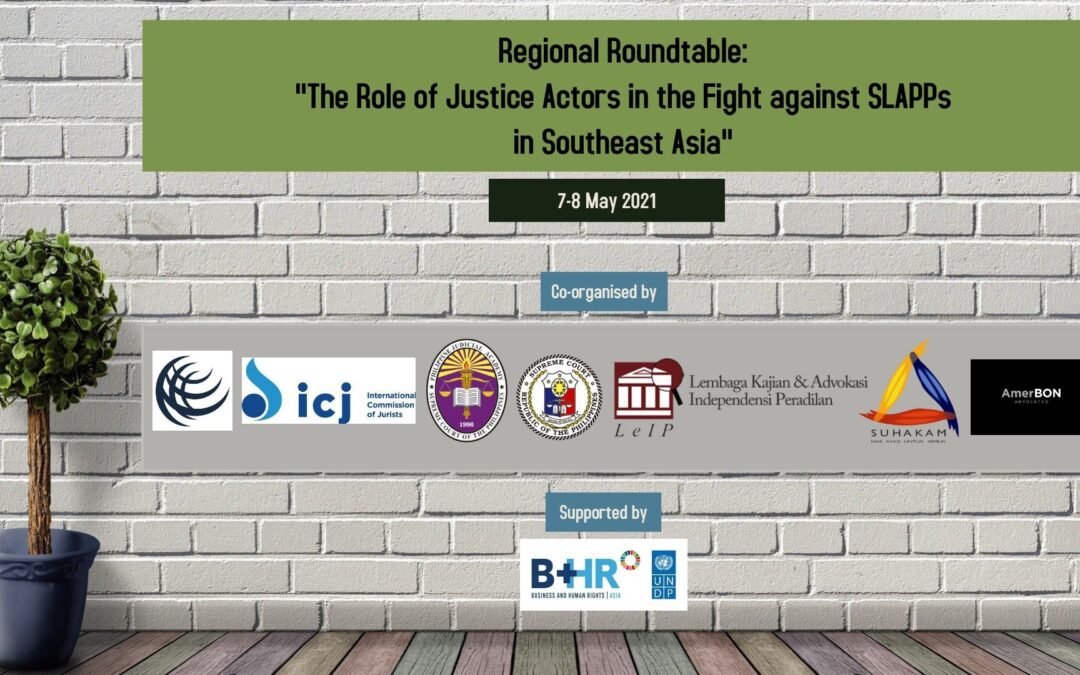
May 9, 2021 | News
Southeast Asian governments must diminish the misuse of lawsuits to harass and silence civil society, so-called SLAPP suites, said more than 70 international experts, judges, public prosecutors, lawyers, members of civil society organizations, academics, and members of executive and State institutions from Indonesia, Malaysia, the Philippines, and Thailand at a discussion convened by the ICJ and partners on 7 and 8 May.
The participants at the regional dialogue on “The Role of Administration of Judicial Authorities and Legislators in the Fight against Strategic Lawsuits Against Public Participation (SLAPPs) in Southeast Asia” addressed the proliferation of SLAPP suits, which SLAPP suits are undertaken with the principal objective of curtailing or deterring public criticism or opposition to certain activities by the entity initiating the legal action. SLAPP lawsuits typically have a “chilling effect” on the exercise of freedom of expression and other human rights and fundamental freedoms, including freedom of opinion and expression (article 19 of the International Covenant on Civil and Political Rights); freedom of peaceful assembly (article 21); and the right to take part in the conduct of public affairs (article 25).
Irene Khan, Special Rapporteur on the promotion and protection of freedom of opinion and expression, stated that it is necessary to bring exiting laws in compliance with international law and standards, including with the principles of legality, proportionate, necessity, legitimate purpose, and non-discrimination, and called for defamation laws to be decriminalized.
Prof. Surya Deva, Vice-Chairperson, the Working Group on the issue of human rights and transnational corporations and other business enterprises, referred to several anti-SLAPP provisions that, in his view, are inadequate, including section 161/1 and 165/2 of Thailand’s Criminal Procedure Code. He pointed out that while the legal reform needed, States also need to train relevant stakeholders who will make use of these. Internal or soft guidance can also be a helpful guideline on how to exercise discretion, and more resources should be allocated to raise awareness.
Several participants, while noting their duties to protect rights to access to justice and the power imbalance between the parties in SLAPP lawsuits, called for a robust legal frameworks and policies that prevent the filing SLAPPs in the first place and allow relevant authorities to identify, call out and dismiss them as soon as they are filed.
In the jurisdictions where such mechanisms exist, participants highlighted the need to address certain gaps to allow authorities to promptly and effectively exercise their power, and the importance of guidelines that can guide the relevant authorities on how to handle and proceed with SLAPPs in a coordinated effort to raise awareness among justice sector actors on this topic.
In the absence of a specific Anti-SLAPP legislation, participants also shared their experience using existing tools in their domestic laws as a basis in combating SLAPPs, including several provisions of the constitutions, other early dismissal mechanism provided in procedural laws, provisions under international laws, and encouraged their peers to think out of the box.
Reforming individual causes of action that commonly form the basis of SLAPPs, such as defamation, to ensure their compliance with international law and standards were also discussed by participants as another approach that the governments should consider, in combination with other measures.
Remedies for persons negatively affected by SLAPP lawsuits were encouraged.
The Workshop was conducted in collaboration with Business & Human Rights Resource Centre (BHRRC); Philippine Judicial Academy; the Supreme Court of the Republic of the Philippines; Lembaga Kajian dan Advokasi Independensi Peradilan (Indonesian Institute for Independent Judiciary or LeiP); Human Rights Commission of Malaysia (SUHAKAM) and AmerBON Advocates.
The speakers at the workshop were: representatives of all partner organizations; Nikhil Dutta, Global Programs Legal Advisor of the International Center for Not-for-Profit Law (ICNL); Joel Hernández García, Inter-American Commission on Human Rights’ Rapporteur on the Rights of Human Rights Defenders and Justice Operators; Irene Khan, Special Rapporteur on the promotion and protection of freedom of opinion and expression; and Prof. Surya Deva, Vice-Chairperson, the Working Group on the issue of human rights and transnational corporations and other business enterprises.
